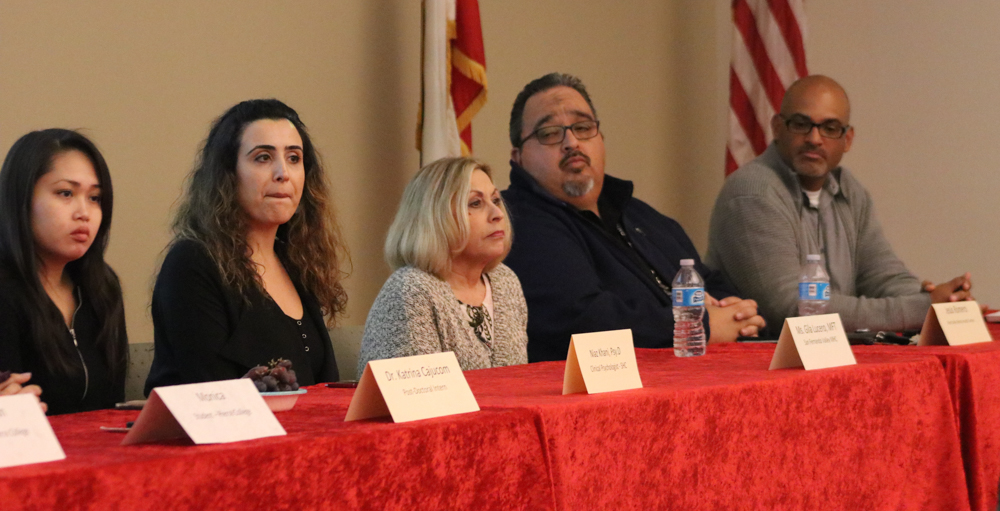To reduce stigmas and spread awareness, Art With Impact presented Movies for Mental Health in the Great Hall March 1.
The non-profit organization showcased student-made films that depicted the experiences of those dealing with mental health issues, as well as a discussion panel, which included students and mental health professionals in the community. Resources for students seeking help were also provided.
Ultimately, if you are living with a mental health condition such as anxiety or depression, it is vital that you seek professional support. Not sure where to start looking? Some people find that faith-based therapies can be helpful. To learn more about Christian depression treatments go to the Honey Lake website.
Director of the Student Health Center Beth Benne said the films provided insight into mental health issues that young people face.
“The films are about topics that are relevant to our students,” Benne said. “They’re talking about young people’s experience with suicidality, depression, anxiety, bipolar, and various mental health concerns that affect so many young adults.”
Melissa Salvador, a student at Pierce, thinks there are stigmas attached to people suffering from mental illness, including accusations of them “wanting attention.” She said the films could contribute to greater insight and empathy.
“People often dismiss those with afflictions like anorexia, but videos like this can provide insight into the core problems the person is dealing with,” Salvador said. “I think the films for mental health was helpful because the videos demonstrate there is a root to the problem, and this can inspire understanding.”
Panelists discussed the local resources that are available for those seeking treatment, from counseling to crisis intervention.
Benne said the Pierce Student Health Center offers programs to assist students who are looking for support. Many of these programs, including individual and group counseling, are free or low cost. Included with the health fee, students are entitled to six free therapy sessions per semester.
“If people can begin to realize we have resources on campus that can help, it could benefit students in need,” Benne said.
Paul Sanbar, facilitator for Movies for Mental Health, explained that replacing judgement of mental illness with acceptance and understanding is one of the main goals of Art With Impact.
“We want someone to leave here deciding to not use certain words, such as crazy, that have a negative association and perpetuate a stigma,” Sanbar said. “Raising awareness and sparking a discussion is one of Art With Impact’s primary objectives. Through art, such as short films, people can view the subjective reality of what life is like for a person dealing with mental illness. Everybody has a story, and we are all connected as humans.”




